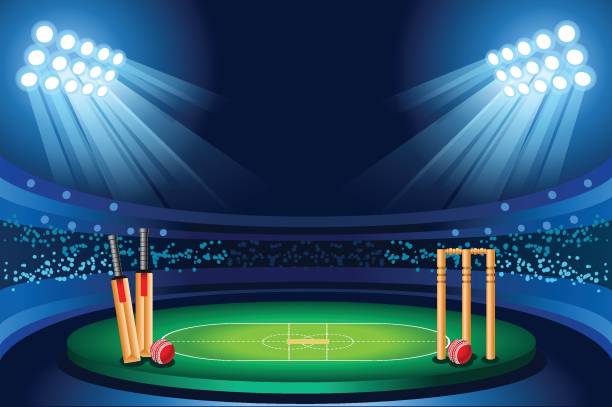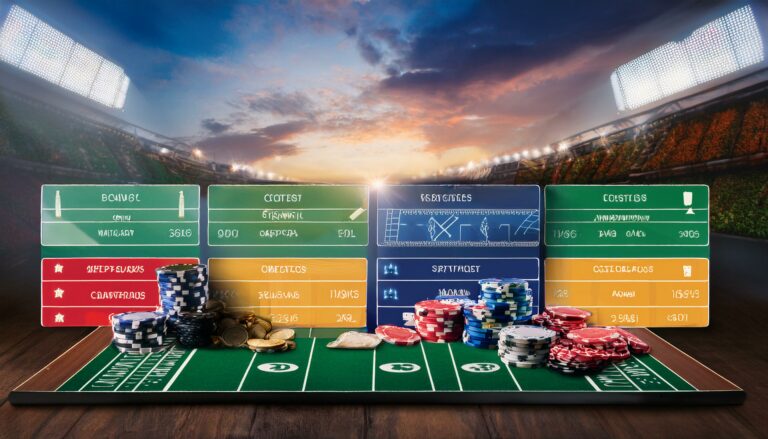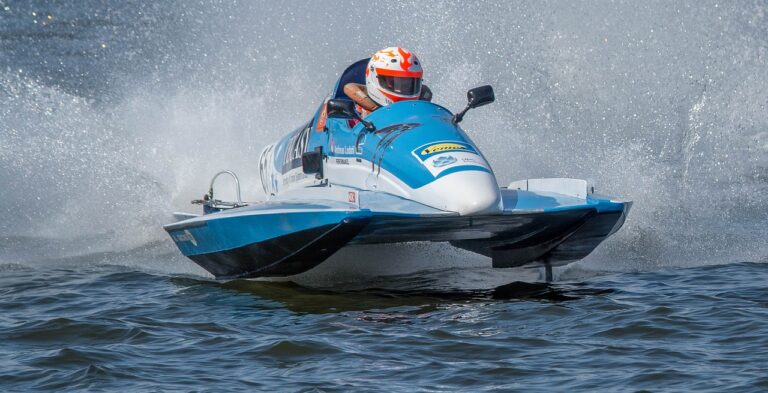The Psychology of Prop Betting: Analyzing Side Bets
Play99exch, 11xplay: Prop bettingshort for proposition bettinginvolves wagering on specific outcomes within a game or event that are typically unrelated to the final result. These bets can range from predicting the number of points a player will score to whether a certain action will occur during a specific play. Prop bets offer a wide range of possibilities for bettors to engage with a match beyond just the final scoreinjecting an element of excitement and unpredictability into the betting experience.
Unlike traditional betting where the focus is on the overall resultprop betting allows individuals to hone in on specific aspects of the gameoffering a more nuanced way to interact with sports or entertainment events. With prop betsbettors can showcase their expertise in a particular area of the game or simply add an extra layer of excitement to their viewing experience by rooting for specific outcomes within the broader context of the event.
The Appeal of Side Bets
Side betsalso known as prop betsoffer an additional layer of excitement and engagement for individuals participating in various activities. These supplemental wagers allow people to diversify their betting options beyond the traditional outcomestapping into their desire for unpredictability and increased entertainment value. By introducing side betsindividuals are able to customize their gambling experiencetailoring it to their specific preferences and risk tolerance.
Furthermoreside bets serve as a social catalystfostering camaraderie and friendly competition among participants. The shared experience of engaging in prop bets can strengthen bonds and create a sense of community among individualsenhancing the overall enjoyment of the activity. This communal aspect of side bets adds a dynamic dimension to the betting experiencemaking it not only about the monetary outcome but also about the shared memories and interactions that are formed along the way.
The Influence of Social Proof
Social proof plays a significant role in prop bettinginfluencing individuals to follow the actions of others based on the assumption that those actions are correct. This psychological phenomenon stems from the innate desire to conform and seek validation from the decisions of the larger group. When individuals observe others engaging in a particular prop betthey are more likely to perceive it as a socially acceptable and favorable choiceprompting them to mimic the behavior.
Moreoverthe influence of social proof can lead individuals to overlook their own analysis and judgment in favor of adopting the beliefs and actions of the crowd. This group mentality can create a sense of security and reassurance in prop betting decisionseven if they deviate from one’s initial instincts or logic. By leveraging the power of social proofprop betting enthusiasts can tap into the collective wisdom and experience of others to inform and guide their own betting strategies.
Risk Taking Behavior in Prop Betting
Prop betting often involves a certain level of risk-taking behavior among participants. The thrill of placing a wager on a specific outcome can lead individuals to push boundaries and take chances they might not otherwise consider. This willingness to take risks is heightened in prop bettingwhere the outcomes are typically more specific and unique compared to traditional forms of gambling.
In the world of prop bettingrisk-taking behavior is often driven by the desire for instant gratification and the excitement of uncertainty. The lure of potentially winning big on a prop bet can overshadow the potential consequences of losingleading individuals to ignore warning signs and make impulsive decisions. This behavior is further fueled by the competitive nature of prop bettingwhere participants may feel pressured to outdo one another in pursuit of glory and bragging rights.
The Role of Cognitive Biases
Cognitive biases play a significant role in prop betting by influencing decision-making processes. These biases can lead individuals to make irrational choices based on subjective beliefs rather than objective information. For examplethe confirmation bias may cause bettors to seek out information that supports their chosen outcome while ignoring evidence that contradicts it.
Another common cognitive bias in prop betting is the anchoring biaswhere individuals rely too heavily on the first piece of information they receive when making decisions. This can lead to overvaluing certain outcomes or not adjusting beliefs based on new information. By being aware of these biasesbettors can take steps to mitigate their impact and make more informed choices when engaging in prop betting.
• Cognitive biases play a significant role in prop betting by influencing decision-making processes.
• Biases can lead individuals to make irrational choices based on subjective beliefs rather than objective information.
• Confirmation bias may cause bettors to seek out information that supports their chosen outcome while ignoring evidence that contradicts it.
• Anchoring bias is another common cognitive bias in prop betting where individuals rely too heavily on the first piece of information they receive when making decisions.
• This can lead to overvaluing certain outcomes or not adjusting beliefs based on new information.
• By being aware of these biasesbettors can take steps to mitigate their impact and make more informed choices when engaging in prop betting.
The Impact of Emotions on Prop Betting
Emotions play a significant role in prop betting and can heavily influence decision-making processes. When engaging in prop bettingindividuals may experience a range of emotions such as excitementanxietyand fear. These emotions can lead to impulsive actions and irrational choicesimpacting the outcome of the bets.
Moreoveremotions like overconfidence or a need for revenge stemming from previous losses can cloud judgment and result in poor decision-making. In the heat of the momentindividuals may prioritize short-term gratification over long-term successleading to risky bets that are driven by emotions rather than logic. Understanding and managing emotions is crucial in prop betting to make informed and strategic choices that maximize success and minimize losses.
The Power of Peer Pressure
Peer pressure plays a significant role in influencing individuals’ decisions and behaviorsincluding their participation in prop betting. When individuals observe their peers engaging in prop betting activitiesthey often feel pressured to participate as well in order to fit in or be perceived as part of the group. This social pressure can lead individuals to make impulsive decisions without fully considering the potential risks and consequences involved in prop betting.
Moreoverpeer pressure can also create a sense of competition among individualsdriving them to take risks in prop betting that they may not have otherwise taken. The desire to outperform or impress their peers can cloud individuals’ judgment and lead to irrational decision-making in prop betting scenarios. As a resultthe influence of peer pressure in prop betting can exacerbate risk-taking behaviors and contribute to the escalation of potentially harmful betting patterns.
The Connection Between Prop Betting and Dopamine
Dopaminea neurotransmitter associated with pleasure and rewardplays a significant role in prop betting. When engaging in prop betsthe anticipation of a potential win releases dopamine in the braincreating a sense of excitement and satisfaction. This chemical reaction reinforces the behaviormaking individuals more likely to participate in prop betting activities again in search of that same thrill.
As prop betting provides a quick and immediate outcomethe rush of dopamine released upon winning can be addictive. The brain craves this chemical rewardleading individuals to seek out more prop betting opportunities to experience the same pleasurable sensation. Over timethis cycle of dopamine release and gratification can create a strong association between prop betting and feelings of happiness and fulfillmentfurther influencing an individual’s propensity to continue engaging in such activities.
The Influence of Previous Wins and Losses
When it comes to prop bettingthe influence of previous wins and losses is a significant factor that can impact an individual’s decision-making process. Research has shown that individuals tend to be influenced by their past experiencesparticularly when it comes to making predictions and placing bets on various outcomes. Winning streaks can lead to overconfidencecausing individuals to take greater risks and potentially make poorer decisions. On the other handexperiencing losses can trigger a sense of cautionleading individuals to be more risk-averse in their betting behavior.
Psychologicallythe memory of past wins and losses can also play a role in shaping an individual’s perception of their skills and abilities in prop betting. Winning can create a sense of mastery and competencyleading individuals to believe that they have a better understanding of the outcomes and probabilities involved. Converselyrepeated losses can erode confidence and self-efficacycausing individuals to doubt their decision-making abilities and become more hesitant in their betting choices. This interplay between past wins and losses can have a profound impact on how individuals approach prop betting and the risks they are willing to take.
Strategies for Managing Prop Betting Behavior
One effective strategy for managing prop betting behavior is to set clear and specific limits before engaging in any bets. By establishing predetermined boundaries for how much money or time can be spent on prop bettingindividuals can help prevent impulsive decision-making and maintain control over their actions. These limits serve as a guiding framework that can help individuals stay within their means and avoid excessive risk-taking behaviors.
Additionallyseeking support from trusted friends or family members can also be beneficial in managing prop betting behavior. By sharing concerns and discussing betting habits with loved onesindividuals can gain valuable perspectives and encouragement to make healthier choices. This external support system can provide accountability and assistance in staying disciplined and responsible when participating in prop betting activities.
What is prop betting?
Prop bettingshort for proposition bettingis a type of wager that is not directly tied to the outcome of a game or event. It involves betting on specific occurrences or details within a game or event.
Why are prop bets so appealing to some people?
Prop bets can be appealing because they add an element of excitement and entertainment to watching a game or event. They also offer the opportunity to bet on a wide range of outcomes beyond just the final score.
How does social proof influence prop betting behavior?
Social proofor the tendency to follow the actions of others in a social settingcan influence prop betting behavior by making individuals more likely to place bets based on what they see others doing.
What role do cognitive biases play in prop betting?
Cognitive biasessuch as overconfidence or the tendency to rely on recent informationcan impact prop betting behavior by affecting how individuals assess the likelihood of different outcomes.
How can emotions impact prop betting behavior?
Emotions can impact prop betting behavior by influencing decision-making processes. For exampleindividuals may be more likely to take risks or make impulsive bets when they are experiencing strong emotions.
Can peer pressure affect prop betting behavior?
Yespeer pressure can influence prop betting behavior by making individuals feel pressure to conform to the actions or expectations of their peerseven if they may not necessarily agree with those choices.
What is the connection between prop betting and dopamine?
Prop betting can trigger the release of dopamine in the brainwhich is associated with feelings of pleasure and reward. This can make prop betting behavior potentially addictive for some individuals.
How do previous wins and losses impact prop betting behavior?
Previous wins and losses can impact prop betting behavior by influencing individuals’ perceptions of their own skill or luckas well as their willingness to take risks based on past outcomes.







